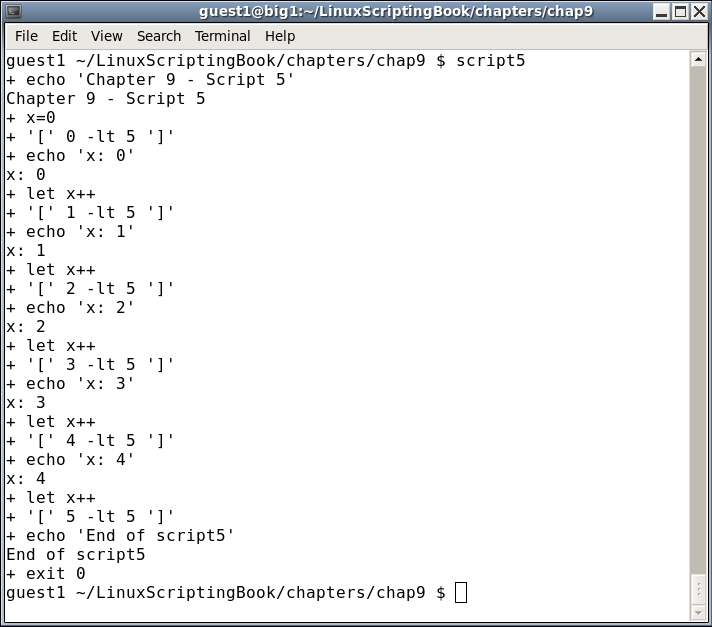Using set to debug scripts
You can use the set commands to help with debugging your scripts. There are two common options to set, x and v. Here is a description of each.
Note that a - activates the set while a + deactivates it. If that sounds backwards to you it is because it is backwards.
Use:
set -x: to display the expanded trace before running the commandset -v: to display the input line as it is parsed
Take a look at Script 5 which shows what set -x does:
Chapter 9 - Script 5 and Script 6
#!/bin/sh # # 6/7/2017 # set -x # turn debugging on echo "Chapter 9 - Script 5" x=0 while [ $x -lt 5 ] do echo "x: $x" let x++ done echo "End of script5" exit 0
And the output:

If this looks a little strange at first don't worry, it gets easier the more you look at it. In essence, the lines that start with a + are the expanded source code lines, and the lines without a + are the output of the script.
Look at the first two lines. It shows:
+ echo 'Chapter 9 - Script 5' Chapter 9...








































































